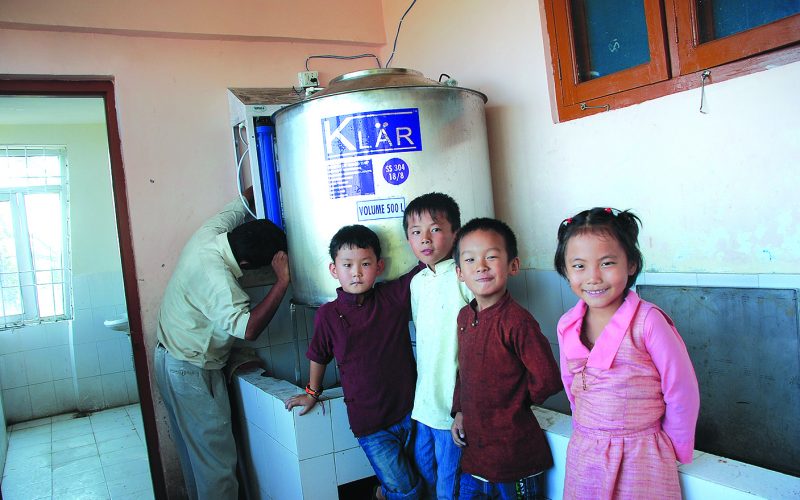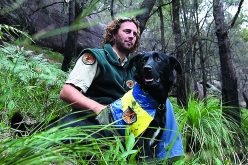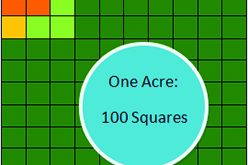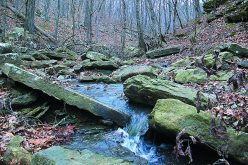By Amanda Bancroft

Photo Submitted
Students in front of the new water filter system at Sambhota Model Tibetan School in Dharamsala, India.
People Making Ripples: John Remmers, of the Fayetteville-based Himalayan Village Fund, works on issues of education and water access. Their two projects include scholarships for Nepalese children of the untouchable caste (Dalits) so they can attend private school, and water filtration systems for Tibetan refugee children in Dharamsala, India. As climate change continues to reduce available drinking water, accessible water has become both an environmental and a social justice issue. Learn more at www.HimalayanVillageFund.org
There are several things I try to buy locally. Ideas aren’t one of them. Ripples creates a locally-based global operation, collaborating daily with people worldwide who are helping us help the world — a world which includes our local community. The “New Local” judges products and actions by their level of harm (and benefits) to people and planet alike, without judging nationality, ethnicity, or manufacturing location. If our waterways are connected, if our air is connected, if even our pollution is connected as it circulates the globe, then we, as people, had better be connected. We better be at least as connected as the Pacific Ocean garbage patch is connected to humans. Our local survival depends on it.
Google defines local as “belonging or relating to a particular area or neighborhood, typically exclusively so.” Yet we still relate to a good friend who had belonged locally until they moved to California for a new job. As a hypothetical example, what if that friend had always attended meetings of a local water conservation organization, then moved away — are they no longer part of our exclusively local movement, even if that means the organization won’t have access to the new water conservation strategies in California? Surely our local efforts would suffer if this were the case. And in reality, it often is. Perhaps it’s time our concept of local evolves from face-to-face, to race-to-race and place-to-place. Maybe there’s room for Monsanto-fighting friends in India next to our locally-grown non-GMO heirloom tomatoes.
The word “international” can be a part of any local sustainable lifestyle. We must support our local community, but allow the rest of the world to support our local community, too. Food, business, and energy sources (to name a few) are great when they’re local, and often more sustainable. And yet, the problems of globalization include dirty fuels for shipping and airplane travel, the introduction of invasive non-native species, and unfair trade arrangements — not global collaboration. We should find a new fuel, make the trade fair, stop the spread of invasives — but not the conversation. There are despicable things carried on the word international (like chocolate made from child slaves across the ocean) and products to be embraced, like new solar technology from Germany that can convert moonlight into electricity.
Ripples does so much “international” work because of our love for local. We know that international stuff is actually local stuff. Ripples works at the personal, local and international levels. We do this because we know we can buy butter locally, but we’re toast if all the rainforests are destroyed. The New Local recognizes that I am not an Arkansas product. I was proudly made locally on Planet Earth.
Ripples is a blog connecting people to resources on sustainable living while chronicling their off-grid journey and supporting the work of non-profit organizations. Read more on this topic and others at www.RipplesBlog.org










